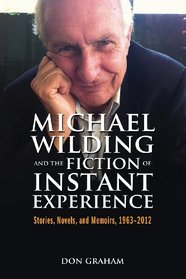Search -
Michael Wilding and the Fiction of Instant Experience: Stories, Novels, and Memoirs, 1963-2012
Michael Wilding and the Fiction of Instant Experience Stories Novels and Memoirs 19632012
Author:
This book explores the work and career of Michael Wilding, one of the most significant literary figures in modern Australia. His oeuvre includes eleven volumes of short stories, several novels and memoirs, important editions of both Australian and English authors, and critical works on writers ranging from John Milton to Christina Stead. Through... more »
Author:
This book explores the work and career of Michael Wilding, one of the most significant literary figures in modern Australia. His oeuvre includes eleven volumes of short stories, several novels and memoirs, important editions of both Australian and English authors, and critical works on writers ranging from John Milton to Christina Stead. Through... more »
ISBN-13: 9781934844953
ISBN-10: 1934844950
Publication Date: 6/1/2013
Pages: 282
Rating: ?
ISBN-10: 1934844950
Publication Date: 6/1/2013
Pages: 282
Rating: ?
0 stars, based on 0 rating
Genres:
- Biographies & Memoirs >> Arts & Literature >> Authors
- Literature & Fiction >> History & Criticism >> Regional & Cultural >> Australian & Oceanian




